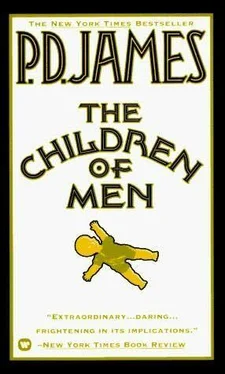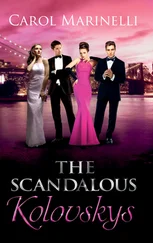Both our mothers are now dead. They were nursed to the end at Woolcombe, which is now a nursing home for the nominees of the Council. Xan’s father was killed in a car crash in France the year after Xan became Warden of England. There was some mystery about it; no details were ever released. I wondered about the crash at the time, still do wonder, which tells me a lot about my relationship with Xan. With part of my mind I still believe him capable of anything, half needing to believe him ruthless, invincible, beyond the bounds of ordinary behaviour, as he had seemed to be when we were boys.
The sisters’ lives had taken very different paths. My aunt, by a fortunate combination of beauty, ambition and good luck, had married a middle-aged baronet, my mother a middle-grade civil servant. Xan was born at Woolcombe, one of the most beautiful manor houses in Dorset. I was born in Kingston, Surrey, in the maternity wing of the local hospital, and taken home to a semi-detached Victorian house in a long, dull road of identical houses leading up to Richmond Park. I was brought up in an atmosphere redolent of resentment. I remember my mother packing for my summer visit to Woolcombe, anxiously sorting out clean shirts, holding up my best jacket, shaking it and scrutinizing it with what seemed a personal animosity, as if simultaneously resenting what it had cost and the fact that, since it had been bought too large, to allow for growth, and was now too small for comfort, there had been no intervening period in which it had actually fitted. Her attitude to her sister’s good fortune was expressed in a series of often-repeated phrases: “Just as well they don’t dress for dinner. I’m not handing out for a dinner jacket, not at your age. Ridiculous!” And the inevitable question—asked with averted eyes, for she was not without shame: “They get on all right, I suppose? Of course that class of person always sleeps in separate rooms.” And at the end: “Of course, it’s all right for Serena.” I knew even at twelve years of age that it wasn’t all right for Serena.
I suspect that my mother thought a great deal more often of her sister and brother-in-law than they ever thought of her. And even my unfashionable Christian name I owe to Xan. He was called after a grandfather and great-grandfather; “Xan” had been a family name with the Lyppiatts for generations. I, too, had been named after my paternal grandfather. My mother had seen no reason why she should be outdone when it came to the eccentric naming of a child. But Sir George puzzled her. I can still hear her peevish complaint: “He doesn’t look like a baronet to me.” He was the only baronet either of us had met and I wondered what private image she was conjuring up—a pale, romantic Van Dyck portrait stepping down from its frame; sulky Byronic arrogance, a red-faced swashbuckling squire, loud of voice, hard rider to hounds. But I knew what she meant; he didn’t look like a baronet to me either. Certainly he didn’t look like the owner of Woolcombe. He had a spade-shaped face, mottled red, with a small, moist mouth under the moustache which looked both ridiculous and artificial, the ruddy hair which Xan had inherited, faded to the drab colour of dried straw, and eyes which gazed over his acres with an expression of puzzled sadness. But he was a good shot—my mother would have approved of that. So too was Xan. He was not permitted to handle his father’s Purdeys but had his own couple of guns with which we would pot rabbits, and there were two pistols which we were allowed to use with blanks. We would set up target cards on trees and spend hours improving our scores. After a few days’ practice I was better than Xan both with gun and pistol. My skill surprised us both, me particularly. I hadn’t expected to like or be good at shooting; I was almost disconcerted to discover how much I enjoyed, with a half-guilty, almost sensual pleasure, the feel of the metal in my palm, the satisfying balance of the weapons.
Xan had no other companions during the holidays and seemed not to need them. No friends from Sherborne came to Woolcombe. When I asked him about school he was elusive.
“It’s all right. Better than Harrow would have been.”
“Better than Eton?”
“We don’t go there any more. Great-grandfather had a tremendous row, public allegations, angry letters, dust shaken off feet. I’ve forgotten what it was all about.”
“You never mind going back to school?”
“Why should I? Do you?”
“No, I rather like it. If I can’t be here, I’d rather have school than holidays.”
He was silent for a moment, then said: “The thing is this, school-masters want to understand you, that’s what they think they’re paid for. I keep them puzzled. Hard worker, top marks, housemaster’s pet, safe for an Oxford scholarship one term; next term big, big trouble.”
“What sort of trouble?”
“Not enough to get kicked out, and of course next term I’m a good boy again. It confuses them, gets them worried.”
I didn’t understand him either, but it didn’t worry me. I didn’t understand myself.
I know now, of course, why he liked having me at Woolcombe. I think I guessed almost from the beginning. He had absolutely no commitment to me, no responsibility for me, not even the commitment of friendship or the responsibility of personal choice. He hadn’t chosen me. I was his cousin, I was wished on him, I was there. With me at Woolcombe he need never face the inevitable question: “Why don’t you invite your friends here for the holidays?” Why should he? He had his fatherless cousin to entertain. I lifted from him, an only child, the burden of excessive parental concern. I was never particularly aware of that concern but, without me, his parents might have felt constrained to show it. From boyhood he couldn’t tolerate questions, curiosity, interference in his life. I sympathized with that; I was very much the same. If there was time enough or purpose in it, it would be interesting to trace back our common ancestry to discover the roots of this obsessive self-sufficiency. I realize now that it was one of the reasons for my failed marriage. It is probably the reason why Xan has never married. It would take a force more powerful than sexual love to prise open the portcullis which defends that crenellated heart and mind.
We seldom saw his parents during those long weeks of summer. Like most adolescents, we slept late, and they had breakfasted when we got down. Our midday meal was a picnic set out for us in the kitchen, a thermos of homemade soup, bread, cheese and pate, slabs of rich homemade fruit cake prepared by a lugubrious cook who managed illogically to grumble simultaneously at the small extra trouble we caused and at the lack of prestigious dinner parties at which she could display her skill. We got back in time to change into our suits for dinner. My uncle and aunt never entertained, at least not when I was there, and the conversation was carried on almost entirely between them while Xan and I ate, casting each other occasionally the secretive, colluding glances of the judgemental young. Their spasmodic talk was invariably about plans for us and carried on as if we weren’t there.
My aunt, delicately stripping the skin from a peach, not raising her eyes: “The boys might like to see Maiden Castle.”
“Not a lot to see at Maiden Castle. Jack Manning could take them out in his boat when he collects the lobsters.”
“I don’t think I trust Manning. There’s a concert tomorrow at Poole which they might enjoy.”
“What kind of concert?”
“I don’t remember, I gave you the programme.”
“They might like a day in London.”
“Not in this lovely weather. They’re much better in the open air.”
When Xan was seventeen and first had the use of his father’s car we would drive into Poole to pick up girls. I found these excursions terrifying and went with him only twice. It was like entering an alien world; the giggles, the girls hunting in pairs, the bold, challenging stares, the apparently inconsequential but obligatory chat. After the second time I said: “We’re not pretending to feel affection. We don’t even like them; they certainly don’t like us. So if both parties only want sex why don’t we just say so and cut out all these embarrassing preliminaries?”
Читать дальше












